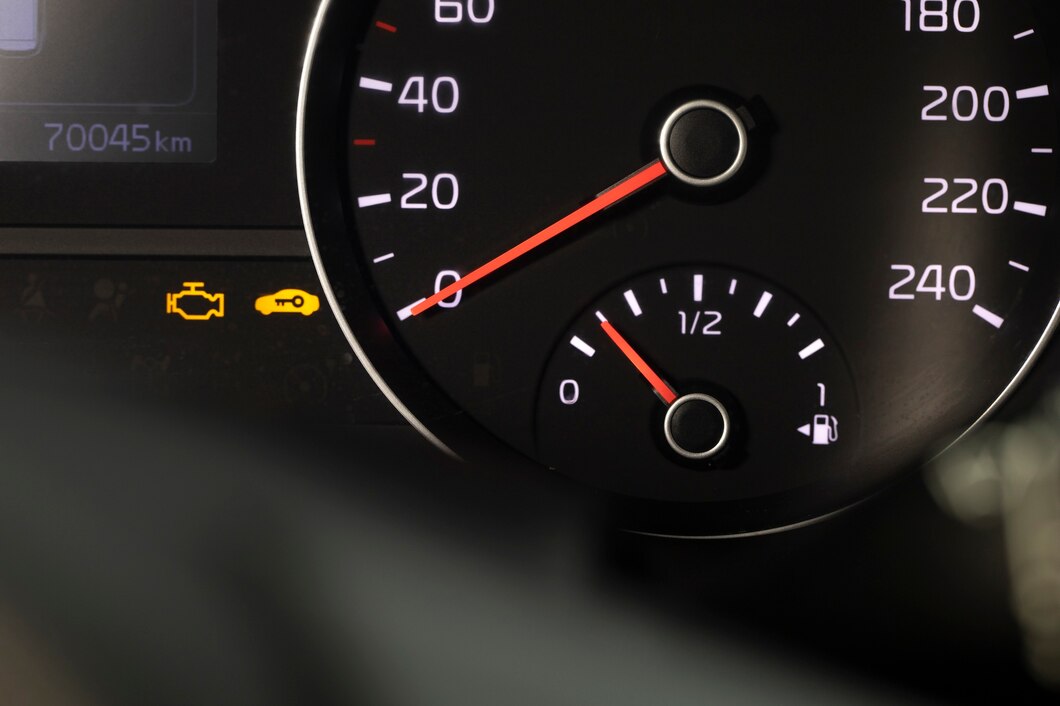Your car’s engine is the heart of its performance and reliability, powering you through daily commutes, road trips, and adventures. However, like any mechanical system, engines are susceptible to wear and tear over time, and early detection of potential issues is key to preventing costly repairs and breakdowns. By recognizing the early signs that your car’s engine may be in trouble, you can address problems promptly and ensure the longevity of your vehicle. Here are some warning signs to watch out for:
- Check Engine Light: One of the most obvious indicators of engine trouble is the illumination of the check engine light on your dashboard. While it doesn’t pinpoint the exact issue, it serves as a general warning that something is amiss with your vehicle’s engine or emissions system. If the check engine light comes on, it’s essential to have your vehicle diagnosed by a professional mechanic to determine the underlying cause.
- Unusual Noises: Strange noises coming from the engine can be an early warning sign of trouble. These noises may include knocking, ticking, grinding, or hissing sounds, which could indicate various issues such as worn bearings, loose belts, or leaking gaskets. Pay attention to any unusual sounds and have them inspected promptly to prevent further damage to the engine.
- Poor Performance: A noticeable decrease in engine performance, such as sluggish acceleration, reduced power, or difficulty starting the engine, can signal underlying issues with fuel delivery, ignition, or compression. These symptoms may be caused by a range of problems, including fuel system issues, ignition system malfunctions, or engine misfires. Addressing these issues early can help prevent further deterioration of engine performance.
- Excessive Exhaust Smoke: The color and consistency of exhaust smoke can provide valuable clues about your engine’s health. Blue smoke typically indicates burning oil, which could be due to worn piston rings or valve seals. White smoke may indicate a coolant leak into the combustion chamber, while black smoke suggests a rich fuel mixture or incomplete combustion. Any significant changes in exhaust smoke should be investigated promptly.
- Oil Leaks: Oil leaks are a common issue in aging engines and can lead to low oil levels, lubrication problems, and engine damage if left unchecked. Inspect your vehicle regularly for signs of oil leaks, such as oil spots or puddles underneath the car, as well as oily residue on the engine or surrounding components. Addressing oil leaks promptly can help prevent more severe engine problems down the line.
- Overheating: Engine overheating is a serious issue that can cause significant damage if not addressed promptly. Signs of engine overheating include the temperature gauge reading above normal, steam coming from the engine bay, or the smell of coolant. Engine overheating can be caused by a variety of factors, including coolant leaks, a malfunctioning thermostat, or a failing water pump. If your engine begins to overheat, pull over safely and have it inspected immediately.
- Vibrations or Rough Idling: Excessive vibrations or rough idling can indicate engine misfires, worn engine mounts, or imbalanced components. These symptoms may be felt through the steering wheel, floorboards, or seat of the vehicle. Ignoring vibrations or rough idling can lead to further damage to engine components and compromise driving safety.
- Decreased Fuel Efficiency: A sudden drop in fuel efficiency can be a sign of engine problems, as it may indicate issues with fuel delivery, combustion, or engine management systems. Keep track of your vehicle’s fuel economy and monitor for any significant changes over time. Factors such as clogged fuel injectors, dirty air filters, or faulty oxygen sensors can all contribute to decreased fuel efficiency.
Recognizing and addressing early signs of engine trouble is essential for preserving the performance, reliability, and longevity of your vehicle. By staying vigilant and proactive in monitoring your car’s engine health, you can prevent minor issues from escalating into major repairs and keep your vehicle running smoothly for years to come. If you notice any of these warning signs, don’t hesitate to consult with a qualified mechanic to diagnose and address the problem promptly.











